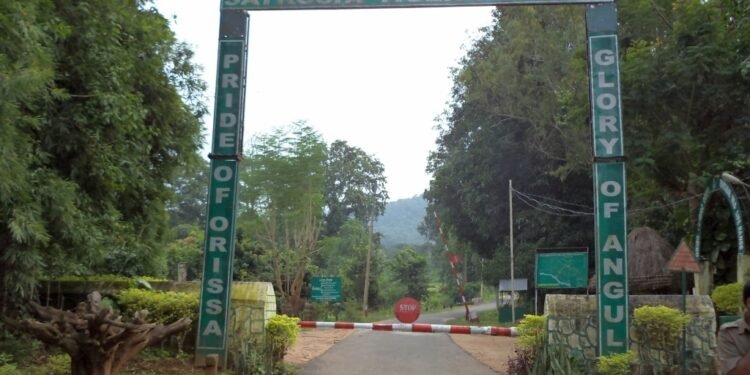New Delhi/Bhubaneswar- The Supreme Court has sought responses from the Centre and the Odisha government regarding a petition that raises concerns over proposed construction and tourism-related developments inside Satkosia Tiger Reserve. The plea highlights violations of key environmental and wildlife protection laws and accuses authorities of undermining the ecological integrity of one of Odisha’s most sensitive forest zones.
The petition, filed by advocate Gaurav Kumar Bansal, objects to the no-objection certificates granted by the district collectors of Angul, Nayagarh, Boudh, and Cuttack for development projects in and around the tiger reserve. These certificates, the petitioner claims, were issued without proper jurisdiction and in direct violation of the Wildlife (Protection) Act, 1972, the Forest (Conservation) Act, 1980, and the Environment (Protection) Act, 1986. The Supreme Court bench led by Chief Justice B R Gavai also sought inputs from the Central Empowered Committee on the matter.
Bansal’s plea points out that the Satkosia Tiger Reserve is home to tigers, elephants, and other endangered wildlife and forms a critical part of India’s conservation landscape. It accuses the state government and district administrations of approving eco-tourism and high-impact construction projects that risk disturbing the ecological balance of the protected area. He particularly questioned how district collectors were allowed to grant such permissions for tourism infrastructure in a core wildlife habitat.
The plea also notes that in April 2018, the National Tiger Conservation Authority directed all states to establish mandatory eco-sensitive zones (ESZs) of at least one kilometre around all tiger reserves. Odisha had recently submitted a draft ESZ proposal for Satkosia to the Ministry of Environment, Forest and Climate Change for notification. However, the petitioner warns that the current draft, if approved, would weaken protective measures by allowing zero-kilometre buffer zones in some parts, in direct violation of NTCA’s directive.
The petition describes the situation as a systemic issue and alleges a consistent pattern of executive overreach, procedural shortcuts, and efforts to dilute environmental norms to promote tourism at the expense of conservation. It calls on the court to ensure that statutory authorities under environmental laws are not bypassed and urges the Odisha government to withdraw its draft ESZ proposal for Satkosia in its current form.



